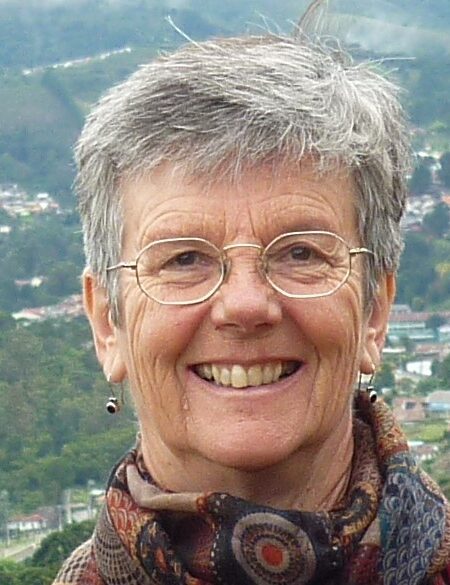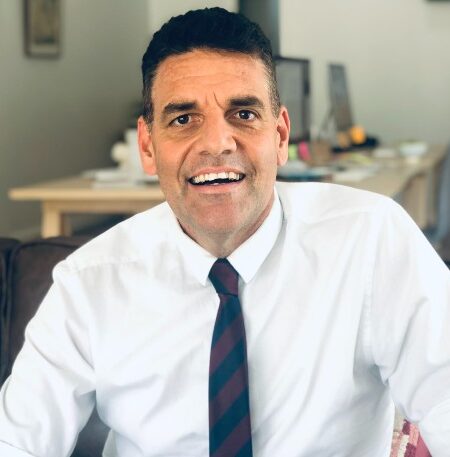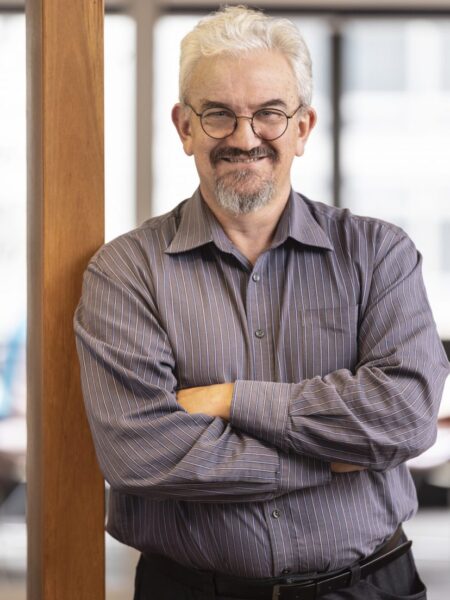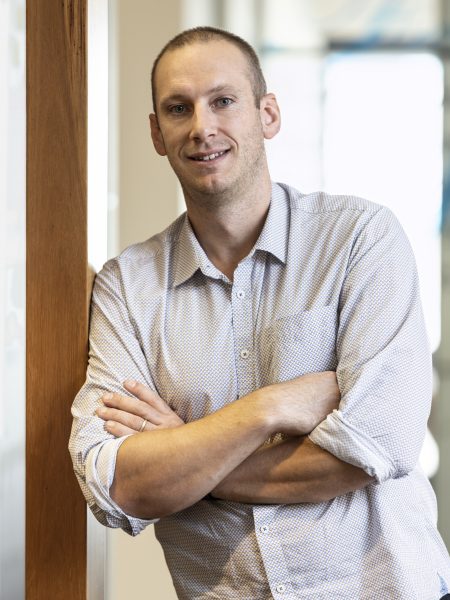Watch the lecture on youtube
Good evening everyone, I’m Cheryl Axleby – a proud Narungga woman and the Co-Chair of Change the Record. It is wonderful to be with you tonight, on this beautiful country – the unceded land of the Ngunnawaal people. I pay my respect to elders past and present and to the cultural authority of all the First Nations peoples who join us tonight.
I have been working in the justice space for forty years. And, like many of you here tonight, I have dedicated my life to working for justice for my people.
Change the Record is Australia’s only national First Nations-led justice coalition. We are made up of First Nations organisations, service providers, legal services, health providers and human rights experts. Our mission is to end the mass incarceration of our people, and the disproportionate rates of family violence experienced by First Nations women.
Tonight I want to talk to you about the crisis of mass incarceration in Australia. Specifically, the colonial crisis that means Aboriginal and Torres Strait Islander people are the most incarcerated group of people in the entire world.
We are on the verge of overtaking the United States as the country who locks up more of our people than anywhere else in the world. Mass incarceration is tearing our families and communities apart. It steals our children’s futures and it ruins lives.
If any other policy decision by government caused so much harm, we would be up in arms. So why isn’t their widespread outrage and demands to change the policy decisions that are driving our people into police and prison cells?
I think it is because since colonisation governments, police, law enforcers and white men in power have very successfully painted Aboriginal people as the problem – rather than the discriminatory laws, policies and policing that cause us so much harm.
So let’s go back to how this started
We cannot talk about mass incarceration without talking about colonisation – and the enduring, ongoing legacy of colonisation on First Nations peoples everywhere.
Australia’s criminal legal system targets people on the basis of their race, their Aboriginality and their wealth. From housing policy to the social security system, right through to police targeting and harassment – it is black, brown and poor people who are the victims of law enforcement and incarceration.
It wasn’t so long ago that Australia’s legal system was built on taking our land, stealing our wealth and ensuring money stayed in the hands of wealthy, white landowners. Some things have changed since then, but many have not:
- Today, Australia is more unequal than it has been in 75 years. Recent Australian Bureau of Statistics data shows that the top 20 per cent of income earners earn almost as much as the other 80% of households combined. There is no doubt that the richer are getting richer, while life gets tougher for everyone else.
- Prisons and police are being used to respond to this inequality. Instead of addressing poverty, we are locking up more people than we have since 1899. Numbers have risen 130% since 1985. This is despite crime rates plummeting over that same period.
- For all governments’ talk about ‘closing the gap’, they are still sending our children to prison and taking them from our homes.
So how do government policies drive mass incarceration?
I often talk about discrimination at every point in the system.
It starts before our kids are born, with discriminatory laws and policies meaning that their Aboriginal father is more likely to be imprisoned than university educated, and their Aboriginal mother is 32 times more likely to be hospitalised from family violence than non-Indigenous women.
It starts with discriminatory laws and policies driving our people into poverty.
20% of all homeless people in Australia are First Nations peoples. We are only 3% of the total population, but 1 in 5 of those who have nowhere to live. Homelessness leads to overcrowding and conflict. It is almost impossible to get a job when you have nowhere to live. Our people have to survive on social security payments which are so low that they force our people to live below the poverty line.
These are the circumstances that government policies have forced many of our people into, and these are the circumstances that our kids are trying to navigate when they get in trouble.
Our kids are born into families who love them and communities who do everything we can to keep our children safe and strong and well. But there are many forces that put our children in harm’s way.
At school, at best, our kids are taught a history of Australia’s invasion that they know in their hearts and their spirits is not true. At worse, they are taught in a language that is not their own, they face discrimination and hostility from their peers and sometimes their teachers, and they are suspended and expelled at far higher rates than their peers.
Getting pushed out of the education system is often the first step towards being pulled into the criminal justice system. Our children are denied their basic human right to education, and come to the attention of police if they’re out and about and not at school. There has been extensive research in Australia comparing the disproportionate rates at which our young people are surveilled by police, harassed and targeted. It is not a coincidence that so many more of our children are picked up by police than non-Indigenous kids.
To give you one example, in the state of NSW in Australia the police have a special list called the Suspect Task Management Plan. This is a secret black list of names that the NSW police used to watch and harass people that they have decided are at risk of committing crimes.
The thing is, they have Aboriginal children as young as nine years old on this list. That’s who their suspects are. When this list was finally uncovered and made public, it was revealed that over half of the names on that list were not hardened criminals – they were Aboriginal and Torres Strait Islander children.
Our children are then treated differently when they are hauled before the courts. Predominately white judges are more likely to lock up Aboriginal and Torres Strait Islander children on remand, then they are non-Indigenous children. In fact, the vast majority of our children who are in youth detention centres are locked up on remand – that means they are being imprisoned before they have even been found guilty of a crime. A report released last year found that the majority of children being held on remand later went on to be released when they had their matters heard before a judge. They should never have been behind bars in the first place.
There are many other complex drivers that put our children at risk. Our kids are more likely to have undiagnosed disabilities, many suffer from trauma and are more likely to have hearing and cognitive impairments – all which place them at risk of unfair and discriminatory treatment.
For many years, First Nations people and families have been campaigning to see the laws that hurt our children abolished. We have been fighting for the age of criminal responsibility to be raised from 10 years old to at least 14 years old – but so far only one of Australia’s eight states and territories has heeded our calls and agreed to raise the age.
At every step, our people are targeted by this system. We are ten times more likely than non-Aboriginal Australians to be policed, arrested, charged and prosecuted.
We are 18 times more likely to be imprisoned.
We are 26% of the prison population despite being only 2.5% of the population.
In the last 10 years, the number of Aboriginal men in prison has tripled, and the number of Aboriginal women has increased by 420 per cent.
Our children are 26 times more likely than non-Aboriginal children to be incarcerated. In some jurisdictions our children are over 40 times more likely to be imprisonned.
The rate at which Aboriginal children are taken from their parents is now twice the rate at the time of the federal government’s apology and greater than at any time in Australian history, including during the Stolen Generation itself.
This is yet another way that the system which was designed to steal our children from us continues to do so.
So what can we do about it?
Imprisoning people for so-called “crimes” of poverty, like not paying parking fines, is a deliberate policy choice.
Criminalising so-called “public nuisance offences”, like being drunk in public, and doing so when you know for a fact that the only people who will be policed for these offences are blackfullas and poor people, is a deliberate policy choice.
Putting heavily armed police in our communities, while drastically underfunding our health, education and other services, is a deliberate policy choice.
Locking up ten-year-old children is a deliberate policy choice.
Spending billions on prisons and police, as governments all over this country, from both major parties, are doing right now, while cutting spending on public housing, income support and other critical social services, is a deliberate policy choice.
All of these policy choices carry forward the legacy of colonisation – and they have to change if our future is going to look different to Australia’s shameful past.
If governments are serious about “Closing The Gap” like they say they are, we need reform at every level
That means not just fixing the pointy-end of the criminal justice system – but also fixing the housing affordability crisis, below-poverty-level Centrelink payments and the lack of funding for community legal and family violence prevention services.
Don’t get me wrong – there is plenty of reform that is needed in the police, prison and judicial system.
For a start, all governments could commit to raise the age to at least 14 years old. The ACT Government has committed to raise the age, but we are still waiting to see the laws actually change.
Over the last month, we have handed Attorneys General at the state and Commonwealth level over 200,000 signatures from members of the community calling on them to Raise the Age. So why are they dragging their feet on a reform that could change the lives of a whole generation of our kids?
Another critical, immediate step that we need governments across this country to take is to reform bail and sentencing laws and stop sending our people to prison because of trauma and poverty.
In Victoria, changes to bail and remand laws have heavily impacted our women and children, who are now sitting in prison waiting for their trials and often spending more time there than they are ultimately even sentenced for.
We also need to address the endemic racial profiling that takes place in the police force. Police routinely target our people and this is a key cause of over imprisonment. Right now the coronial inquest into the police shooting of young Walpiri teenager Kumanjayi Walker is taking place in the Northern Territory. For as long as the culture of racism is allowed to continue in the police force, our people are not safe.
Racism in the police force is a complex problem to tackle and again, we need to start by recognising the colonial legacy of this system. I’m not talking about a few diversity awareness days. I’m talking about deep and fundamental changes to the ways that police operate – including structural changes to how we hold police accountable.
- We should be collecting racial profiling data on stop and searches.
- If police are going to have body worn cameras, then they must be held accountable if they turn them off
- We are on a trajectory across this country of ramping up police powers – we need to reverse this trend.
But it’s not just the police and prison system that needs to change.
We need government to start looking seriously at the policy failures that are driving our people into poverty and into the criminal legal system.
We are facing a housing crisis across Australia
As with so many things, the Covid-19 pandemic highlighted the huge inequities that already existed in our communities – and none more so than the housing crisis.
During Covid-19 we saw First Nations families particularly in remote and regional areas forced to sleep in tents, yards, on verandahs and in the bush to try to avoid infection as the virus spread through families and communities.
We know that overcrowded and poorly maintained housing is well-established as a cause of poor physical and mental health and a major risk factor for increased spread of infectious diseases – but of course its not just during pandemics that the housing crisis hurts First Nations people. It’s all the time.
1 in 3 people are homeless in the month before they are criminalised and locked away in prison. Almost the same number become homeless on their release.
Women, and particularly First Nations women, in violent situations are forced to choose between having a roof over their head but living in danger; or leaving and facing homelessness due to chronic national affordable housing shortages.
These injustices are a result of governments refusing to address the housing crisis and provide more, affordable and community-controlled housing for our people. We welcome the Albanese Government’s commitments to provide more affordable housing in remote communities – but it is not enough. We are calling for an urgent, large investment in affordable housing so that everyone has somewhere to live.
We are also calling for reform of the social security system so it’s a genuine safety net for people who need our support – not a poverty trap.
Right now, Centrelink payments are set so low that they push recipients below the poverty line.
People cannot afford to buy groceries and pay rent on Centrelink payments. They are forced to choose between buying medicine and buying their kids school uniforms.
Women in violent households are forced to choose between staying in an unsafe situation or fleeing into homelessness.
Punitive, discriminatory schemes like ParentsNext force young parents – often young Aboriginal mums – to comply with onerous mutual obligations in exchange for a Centrelink payment they cannot even live off.
It’s humiliating, it’s ineffective and it’s hurting our people.
Our people shouldn’t have to live in poverty and homelessness. But government decisions are driving us here.
There are many changes like this that I could list. These solutions are not complex – give people enough money to afford food and accommodation. Provide affordable, decent housing so people have somewhere to live. Don’t punish people for being poor, provide them with support and services.
The policy solutions are simple, it’s the political will that is hard.
We need to convince politicians that there is public support for change.
200,000 people want governments to stop locking up ten year old children.
Recent polls show that most people support for a Voice to Parliament to give us a say in the decisions that affect our lives.
More and more people are calling for a fairer housing system that doesn’t lock people out.
Politicians and law-makers created this mass incarceration crisis. Together we can solve it.
We are ready for a systemic overhaul. I ask each of us here today to make a commitment now, a genuine commitment in yourselves and your organisations, to help us achieve it.
Thank you.




